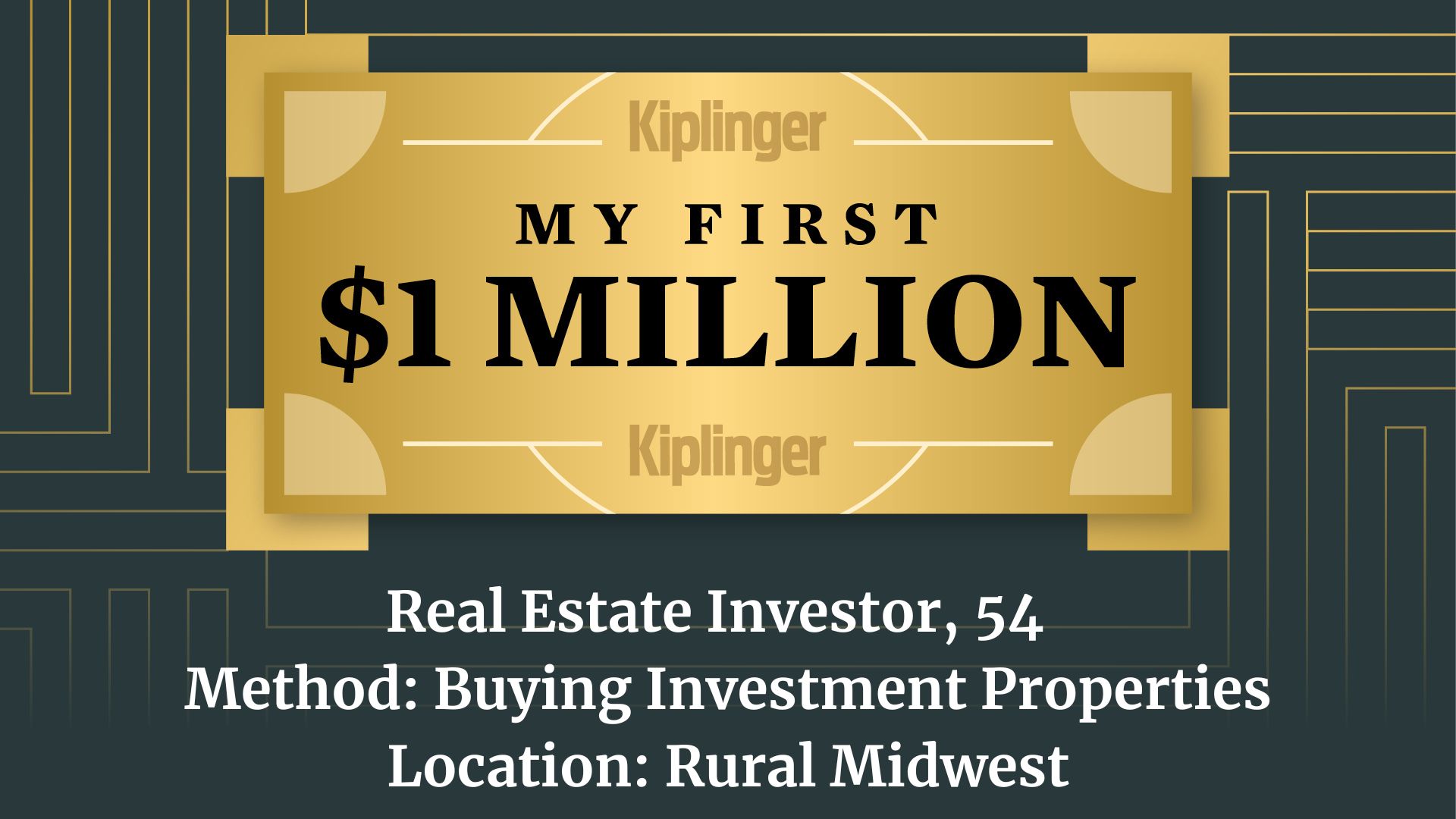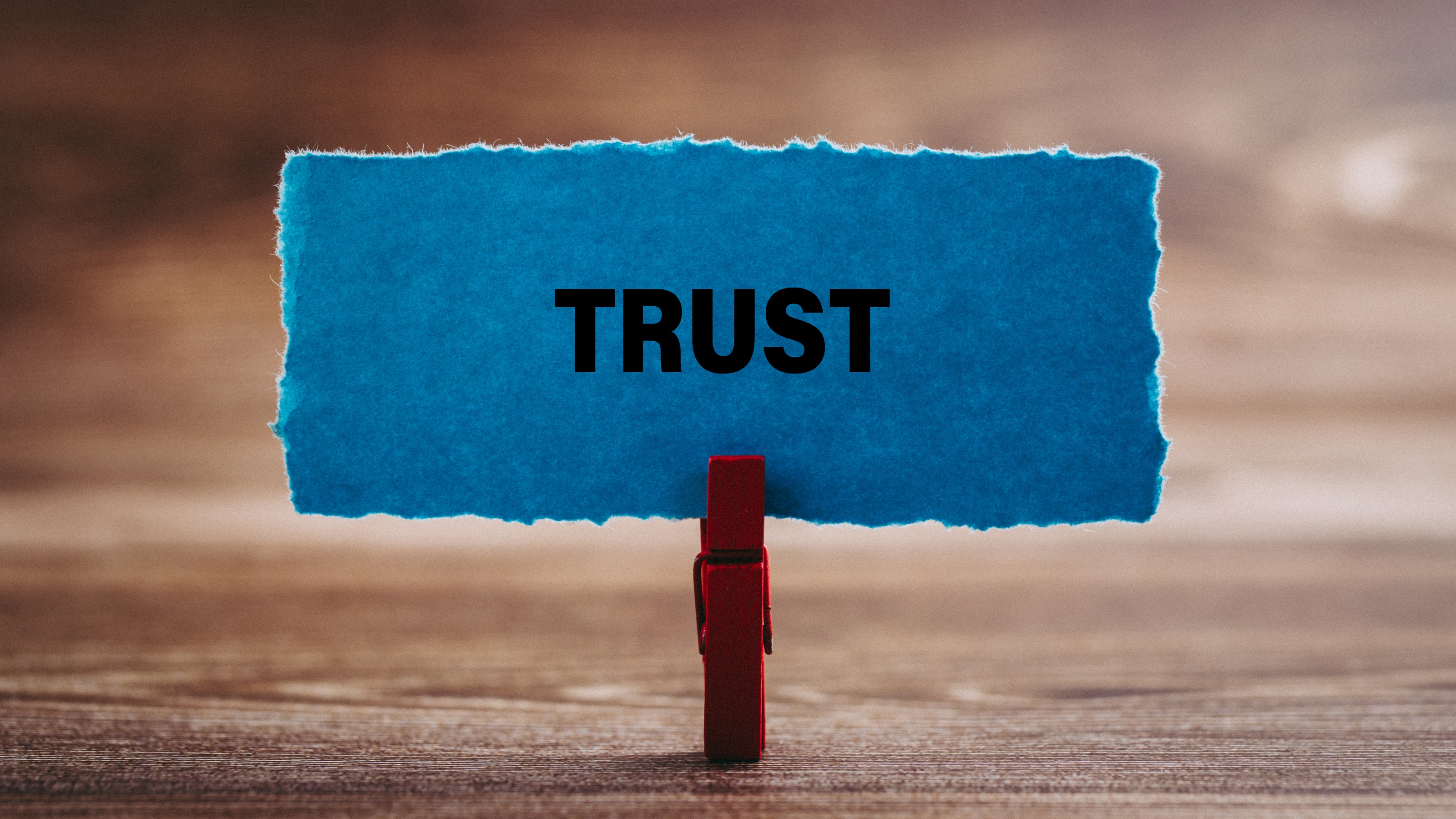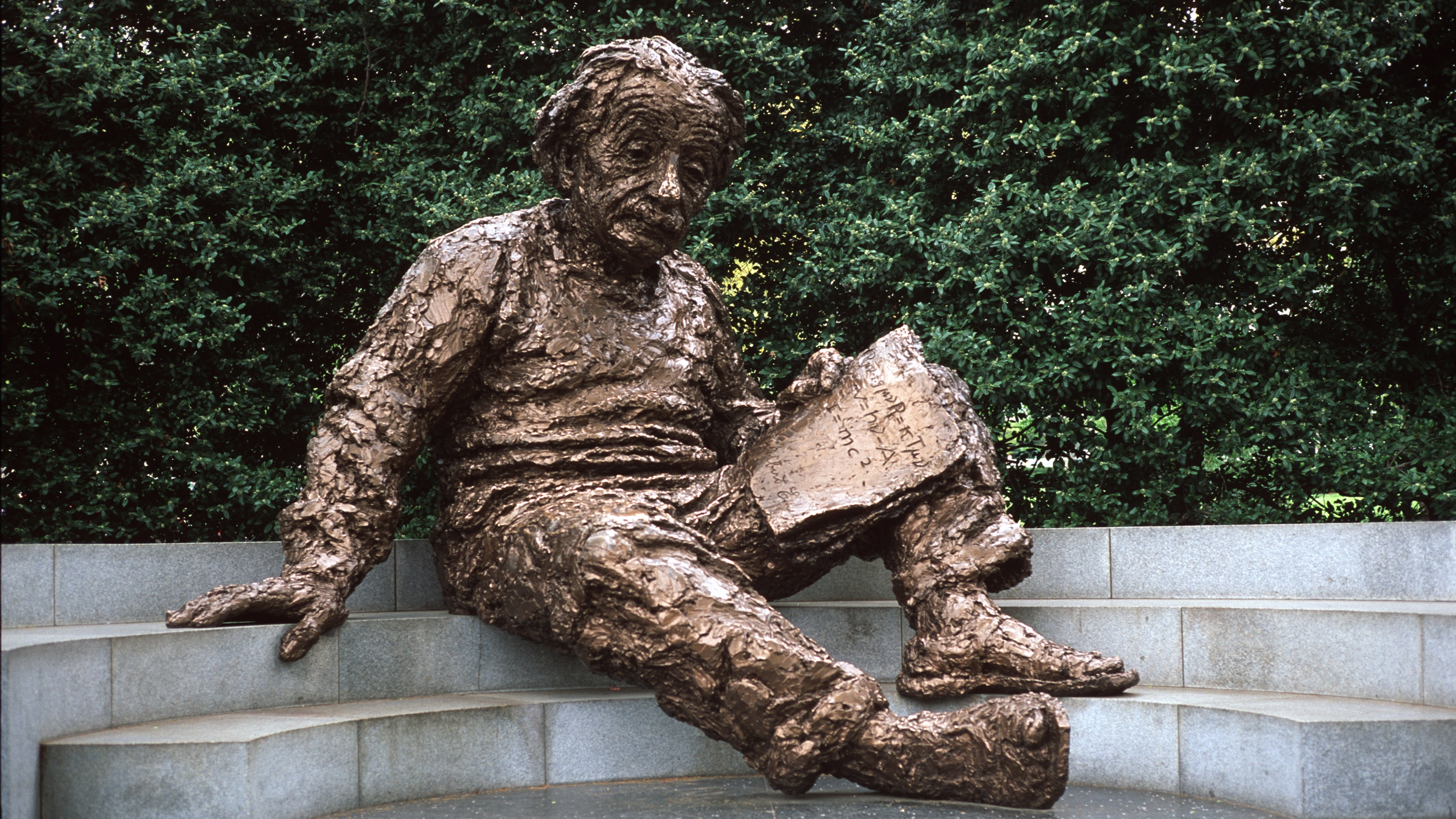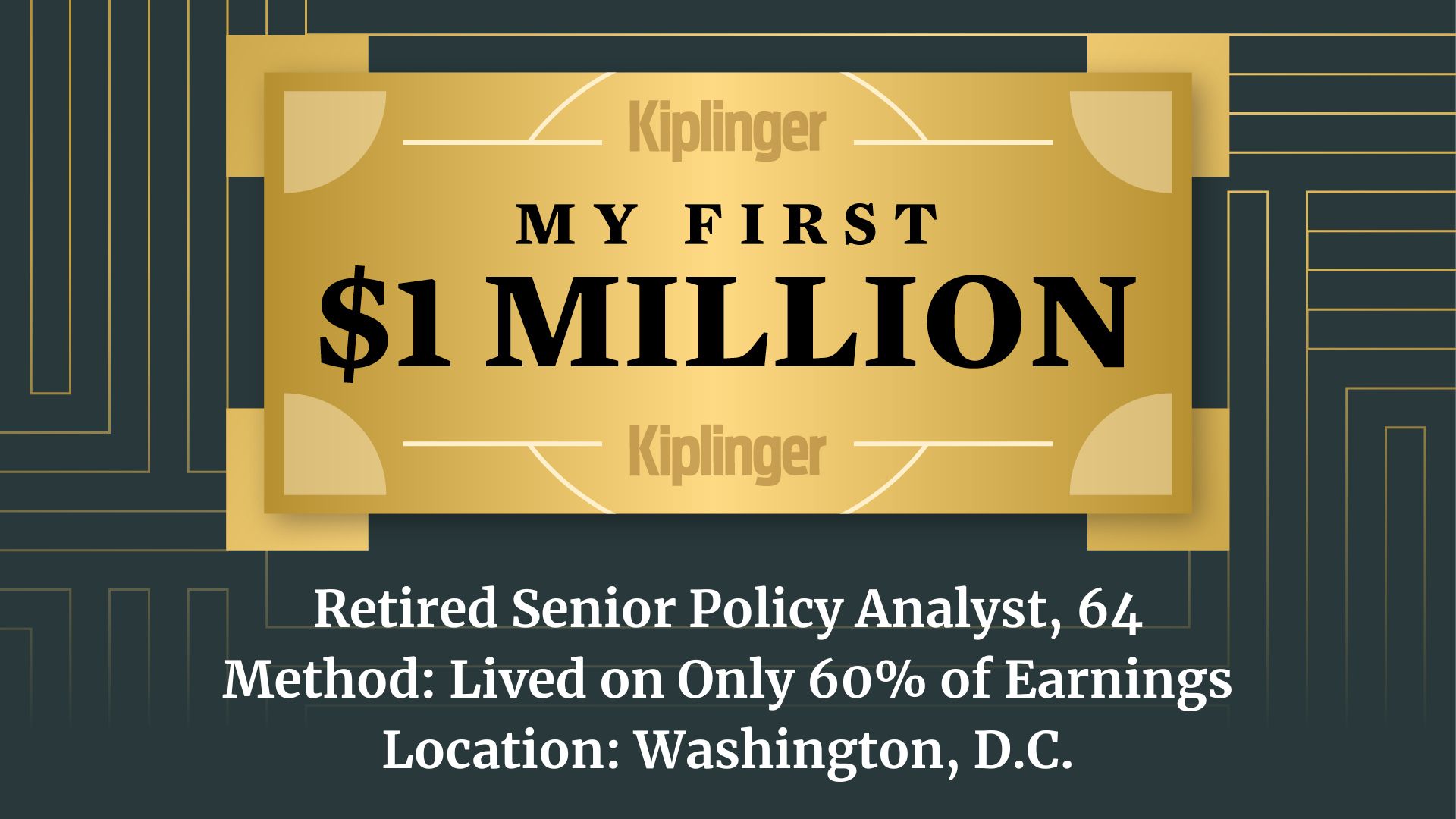My First $1 Million: Real Estate Investor, 54, Rural Midwest
"According to Albert Einstein, compound interest is the eighth wonder of the world. He was right."


Profit and prosper with the best of Kiplinger's advice on investing, taxes, retirement, personal finance and much more. Delivered daily. Enter your email in the box and click Sign Me Up.
You are now subscribed
Your newsletter sign-up was successful
Want to add more newsletters?
Welcome to Kiplinger's My First $1 Million series, in which we hear from people who have made $1 million. They're sharing how they did it and what they're doing with it. This time, we hear from a 54-year-old married real estate investor who lives in the rural Midwest. He and his wife, a government employee, both went to college, obtained graduate degrees and continue to work in their respective fields.
See our earlier profiles, including a writer in New England, a literacy interventionist in Colorado, a semiretired entrepreneur in Nashville and an events industry CEO in Northern New Jersey. (See all of the profiles here.)
Each profile features one person or couple, who will always be completely anonymous to readers, answering questions to help our readers learn from their experience.
From just $107.88 $24.99 for Kiplinger Personal Finance
Become a smarter, better informed investor. Subscribe from just $107.88 $24.99, plus get up to 4 Special Issues

Sign up for Kiplinger’s Free Newsletters
Profit and prosper with the best of expert advice on investing, taxes, retirement, personal finance and more - straight to your e-mail.
Profit and prosper with the best of expert advice - straight to your e-mail.
These features are intended to provide a window into how different people build their savings — they're not intended to provide financial advice.
THE BASICS
How did you make your first $1 million?
We are both hard workers and began buying investment properties (residential and commercial) soon after marrying to supplement our retirement.
However, it was not until we purchased a multifamily property at age 44 that we attained the status of net-worth millionaires. We purchased a distressed multifamily property, spent money rehabbing it and then refinanced it a year after the purchase to recoup our expenditures.

Fortunately, the property appraised for significantly more than we paid, including the expenditures spent remodeling.
We then purchased another similar property and went through the same process.
What are you doing with the money?
We typically spent upwards of 50% of our income on real estate investments (mortgages) on one of our 12 different properties. We own several residential rentals, multifamily properties and commercial properties.
During the 2008-to-2010 time frame, we often struggled because our mortgages had to be paid despite a significant drop in revenue.
When the real estate market dramatically changed in 2021, we obtained a low-interest loan that enabled us to pay off all of the properties and all of our debt, except for the one consolidated loan.
We continue to invest monthly in the stock market. We have Roth IRAs, traditional IRAs, 529 savings plans for each of our children, and she has a government pension.

We also invest in our community and make charitable contributions on a regular basis.
THE FUN STUFF
Did you do anything to celebrate?
We took our family on a nice vacation when we hit the seven-figure net-worth status.
We continue to invest in experiences with our family by prioritizing travel.

We both plan on retiring in three years and have passive income from our properties, other business income and my wife's pension.
Did your life change?
Attaining the status of net-worth millionaires has not changed our lives except that we drive nicer vehicles.
For 15 years, we drove less-expensive, used vehicles so that we did not have car payments — part of this is because we both grew up poor, and wasting hard-earned money on a depreciating asset did not seem like a wise investment.
What is the best part of making $1 million?
The best part of reaching millionaire status is having financial freedom, something neither of us experienced because we both grew up poor.

We plan to grow our wealth with continued market investing and continuing to title properties in our revocable trust.
LOOKING BACK
Anything you would do differently?
If I had to do it over again, I would purchase a quadplex, live in one unit and rent the other three units. I would continue to do this until saving enough to buy a larger multifamily property.
I would also invest $500 a month, no matter what, in an ETF that tracks the S&P 500.
Did you work with a financial adviser?
We work with a professional (Edward Jones) adviser. He's helped us grow our investments to $1.25 million.
I highly recommend utilizing a reputable financial adviser unless you have training and/or education in financial investing.
LOOKING AHEAD
Any advice for others trying to make their first $1 million?
My advice is to invest in real estate young and set up auto-investing as soon as possible so as to contribute $25 per week or $50 per week, or whatever you can, into a low-cost ETF that tracks the S&P 500.
Did you read any financial books that helped you on your journey?
I read the book Rich Dad, Poor Dad by Robert Kiyosaki, and it changed my perspective on real estate. It made perfect sense, as I was doing what Kiyosaki teaches, but did not know he discovered it 50 years ago.
I wish I had read this book in high school — it should be mandatory reading for every high school student.
What do you wish you'd known when you first started saving?
I wish I had known the phrase "those who understand compound interest earn it, and those who don't pay it."

The Albert Einstein Sculpture in Washington, D.C.
According to Albert Einstein, compound interest is the eighth wonder of the world. He was right.
What do you wish you'd known when you first started investing?
I wish I had known not to panic with market volatility. The worst thing to do is to withdraw your funds after a market drop — not only do you lose your investments, but you're paying a penalty and taxes. It's much better to be patient.
If you have made $1 million or more and would like to be anonymously featured in a future My First $1 Million profile, please fill out and submit this Google Form or send an email to MyFirstMillion@futurenet.com to receive the questions. We welcome all stories that add up to $1 million or more in your accounts, although we will use discretion in which stories we choose to publish, to ensure we share a diversity of experiences. We also might want to verify that you really do have $1 million. Your answers may be edited for clarity.
RELATED CONTENT
- You're 62 Years Old With $1 Million Saved: Can You Retire?
- Want to Earn $1 Million More Over Your Lifetime? Do This
- Do You Have at Least $1 Million in Tax-Deferred Investments?
- Are You Rich? U.S. Net Worth Percentiles Can Provide Answers
- Compare Your Net Worth by Age
Profit and prosper with the best of Kiplinger's advice on investing, taxes, retirement, personal finance and much more. Delivered daily. Enter your email in the box and click Sign Me Up.

As Contributed Content Editor for the Adviser Intel channel on Kiplinger.com, Joyce edits articles from hundreds of financial experts about retirement planning strategies, including estate planning, taxes, personal finance, investing, charitable giving and more. She has more than 30 years of editing experience in business and features news, including 15 years in the Money section at USA Today.
-
 4 High-End Experiences Worth the Splurge After 50
4 High-End Experiences Worth the Splurge After 50These curated date ideas provide the perfect backdrop for couples ready to enjoy the very best that the world has to offer.
-
 Health Care Stocks Have Sagged. Can You Bet on a Recovery?
Health Care Stocks Have Sagged. Can You Bet on a Recovery?The flagging health care sector has perked up a bit lately. Is it time to invest?
-
 Costco's Auto Program: Can Membership Pricing Really Save You Money on a Car?
Costco's Auto Program: Can Membership Pricing Really Save You Money on a Car?Costco's Auto Program can simplify the car-buying process with prearranged pricing and member perks. Here's what to know before you use it.
-
 What Is an Assumable Mortgage and Could It Save You Thousands?
What Is an Assumable Mortgage and Could It Save You Thousands?With mortgage rates still elevated, taking over a seller’s existing home loan could lower monthly payments — if the numbers work.
-
 Have You Fallen Into the High-Earning Trap? This Is How to Escape
Have You Fallen Into the High-Earning Trap? This Is How to EscapeHigh income is a gift, but it can pull you into higher spending, undisciplined investing and overreliance on future earnings. These actionable steps will help you escape the trap.
-
 I'm a Financial Adviser: These 3 Questions Can Help You Navigate a Noisy Year With Financial Clarity
I'm a Financial Adviser: These 3 Questions Can Help You Navigate a Noisy Year With Financial ClarityThe key is to resist focusing only on the markets. Instead, when making financial decisions, think about your values and what matters the most to you.
-
 Where Olympians Store Their Medals is a Great Lesson For Your Valuables and Cash
Where Olympians Store Their Medals is a Great Lesson For Your Valuables and CashWhat you can learn about protecting your cash and values from where Olympians store their medals.
-
 An Executive's 'Idiotic' Idea: Skip Safety Class and Commit a Federal Crime
An Executive's 'Idiotic' Idea: Skip Safety Class and Commit a Federal CrimeSeveral medical professionals reached out to say that one of their bosses suggested committing a crime to fulfill OSHA requirements. What's an employee to do?
-
 How You Can Use the Financial Resource Built Into Your Home to Help With Your Long-Term Goals
How You Can Use the Financial Resource Built Into Your Home to Help With Your Long-Term GoalsHomeowners are increasingly using their home equity, through products like HELOCs and home equity loans, as a financial resource for managing debt, funding renovations and more.
-
 How to Find Free Money for Graduate School as Federal Loans Tighten in 2026
How to Find Free Money for Graduate School as Federal Loans Tighten in 2026Starting July 1, federal borrowing will be capped for new graduate students, making scholarships and other forms of "free money" vital. Here's what to know.
-
 My First $1 Million: Retired Senior Policy Analyst, 64, Washington, D.C.
My First $1 Million: Retired Senior Policy Analyst, 64, Washington, D.C.Ever wonder how someone who's made a million dollars or more did it? Kiplinger's My First $1 Million series uncovers the answers.